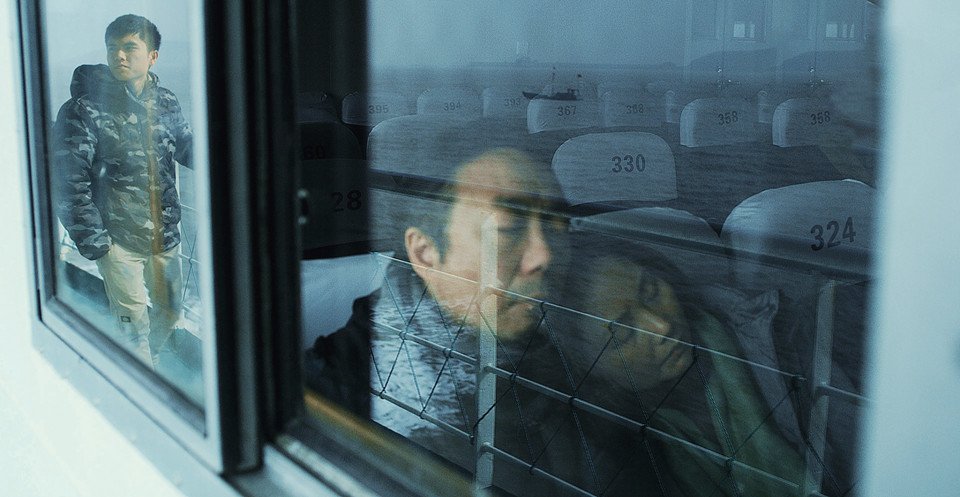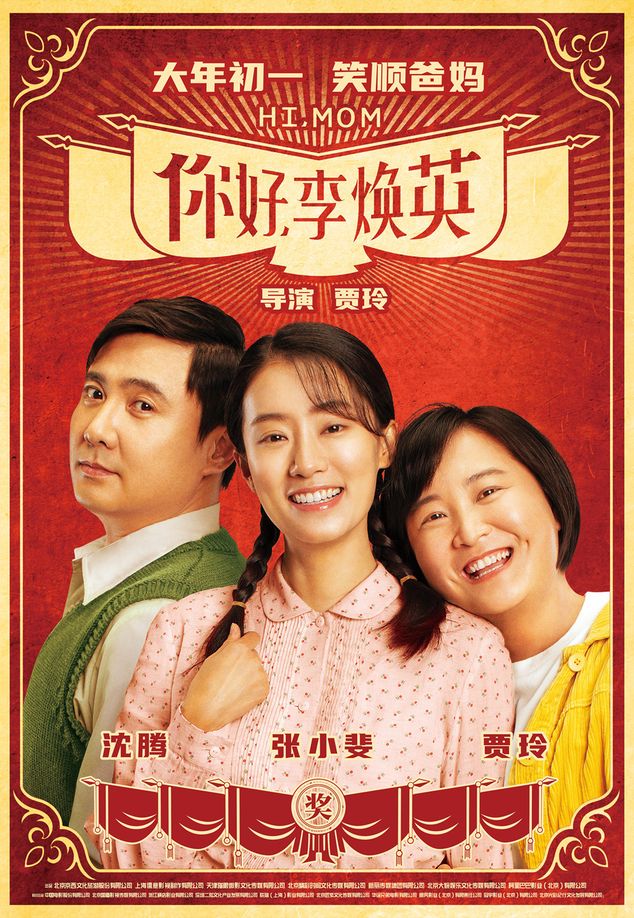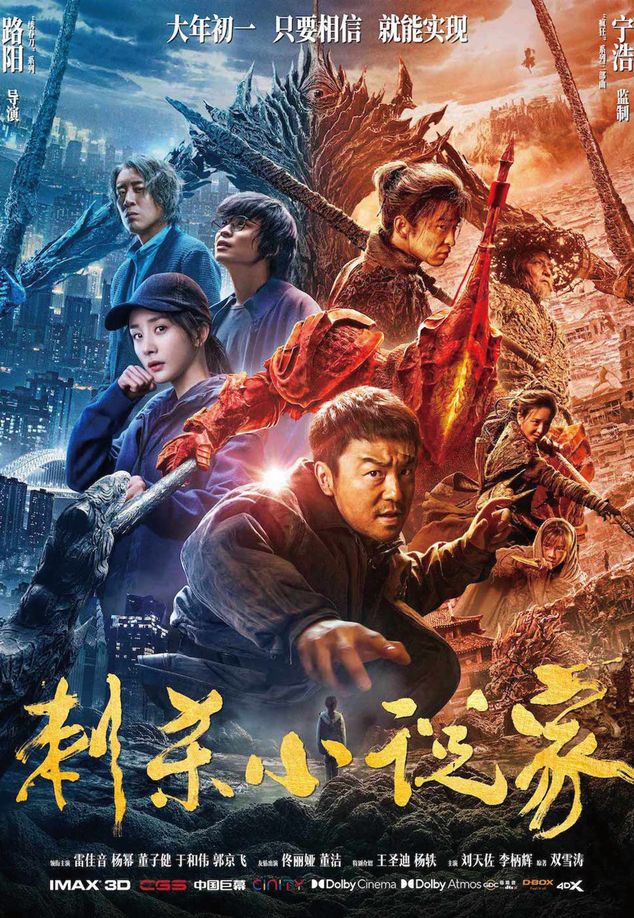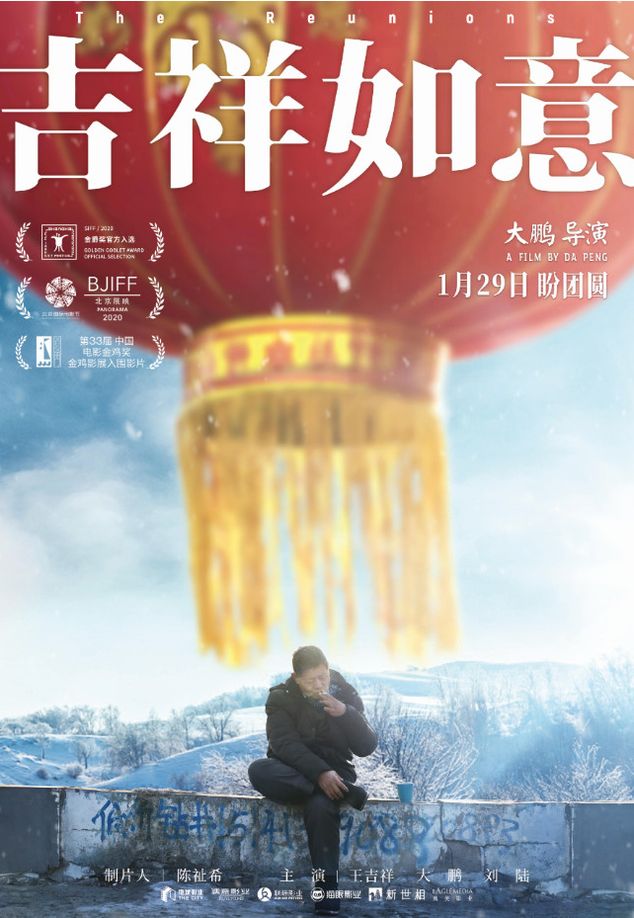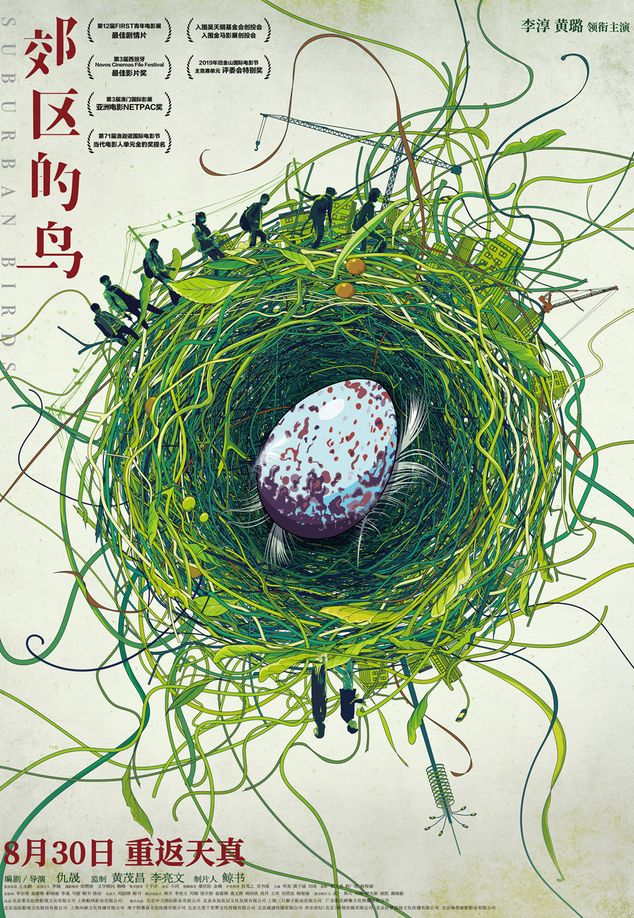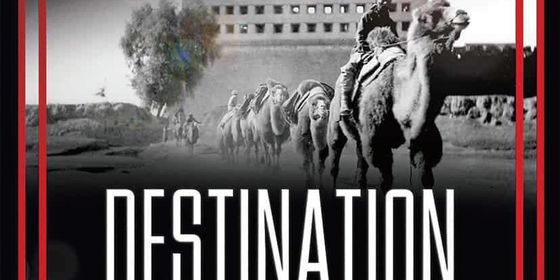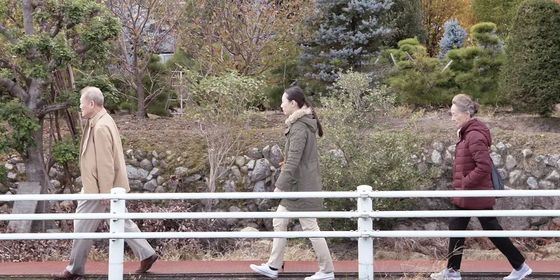Huang Zi's first feature film is an intimate exploration of his own family
An unsteady hand holds the camera as it enters the apartment complex—up the dusty blackened stairs, through a plant-dotted balcony with iron bars wrought in floral shapes. With a right turn, the viewer follows the camera into a living room, where a woman is using a two-sided brush to dye the hair of a man before a television. Behind them, a teenage boy lies asleep.
Such is the lush and intricate visual poetry that opens All About ING, director Huang Zi’s first full-length feature film which won the 2019 Grand Jury Prize at the FIRST International Film Festival, China’s premier launching pad for new directors.
Huang has based the production on his own life. All About ING tells the story of the three members of the Ing family of Guangzhou, and their struggle to accept reality when a health hiccup for father Weiming (Hon-Man Ko) is diagnosed as late-stage liver cancer. Suppressed by the film’s terse storytelling, the pain of Weiming, along with mother Muling (Hang-Ying Pang) and son Yiming (Howard Sit) is given dignity by its understated nature, the three gradually finding the strength to make sense of the blow. “I hope that I can present what I didn’t do in reality—the ways I didn’t satisfy my father—in the film,” Huang told an audience at the Shanghai International Film Festival last July.
All About ING is divided into three chapters, each dedicated to one family member, the first focusing on the discovery of Weiming’s condition. Muling forbids doctors from telling Weiming his diagnosis—an act of kindness, or denial. At the same time, high school student Yiming is accepted into an American college, but keeps the news to himself in case his family can no longer afford it.
The film’s landscapes are all drenched with slow, wretched pain, from the urban labyrinth of Guangzhou to Weiming’s home village on a small island. But there is beauty amid the suffering: lavish camphor trees, woven with a cascade of ivy, stand silent along the streets; old neighborhoods that appear to slumber behind a blanket of mossy walls, guarded by shadowed iron gates from the last century. Though it is a drama, All About ING has the feeling of a documentary, with extensive use of hand-held cameras, long shots, and close-ups. Acted in Cantonese (rare for a film produced on the mainland), All About ING offers a down-to-earth view of Guangdong life.
Beyond attempting to live with Weiming’s cancer diagnosis and shouldering added family responsibilities, Muling and Yiming’s chapters show they have their own issues to deal with: either mid-life frustrations or adolescent angst. In one scene, Muling pounds on her son’s bedroom door yelling, “Open up! Open up! Do you also wish that I’d disappear and never come back?” In another, Yiming and his friends climb over a fence to hike up Baiyun Mountain and envision their future careers, perhaps as street vendors. Together, Muling and Yiming’s chapters sketch out a portrait of a family in crisis: Life continues despite its challenges, and each person learns to cope with their own problems.
But the heart of the film is only revealed with Weiming’s chapter. It begins with a snapshot of Weiming’s dream: He stands on a deserted harbor in his home island, the wind blowing hard on what looks like falling snow. The island (a central image in the film) appears only in dreams, apart from when the family returns for the Tomb-Sweeping Festival to find their ancestral tombs replaced by a new hotel.
The desolate beauty of the seaside village is haunting: yellowing rye on the mountain that looms behind it, abandoned boats, peeling nylon nets, and plastic bottles half-full with oil. On the island, dreamscapes artfully weave into the characters’ lived experiences, blurring the line between real and surreal, past and future.
Lighting is expertly adopted to explore the boundary between dreams and reality. In one scene, Weiming and Yiming sit on the stairs of their hotel. The wind blows through the night outside; the lamp above them sways and shivers, uncertain.
In another scene, Weiming follows a child into a village. There he finds his own mother mending a fishing net, and his older brother standing with a brown cylindrical container strung across his back. The mother, haloed in an otherworldly shaft of light, takes Weiming inside the house, and hands him a bowl of steaming porridge. The light glitters off the steam, warm yet ethereal.
Later, we learn that both of Weiming’s parents passed away years ago, and it is unclear if his brother is still alive. Eventually, Yiming finds the brown container. Inside, there is a painting of the mountain in rich hues of gold and green, with two figures who are presumably Weiming and his brother. In the final sequence of the film, when the unsteady camera enters the living room one last time, we find the painting on the wall at the apartment’s entrance, transported from fresh illusion to faded memory.
Though death is a major theme for All About ING, the film never directly confronts this. Euphemisms are used throughout: a patient dying in the neighboring room; coughed-up blood; an empty hospital bed; and, on the island, a funeral procession with men covered in white from head to foot, throwing shredded paper into the air. The film ends not with death, but renewed life, encompassing the warmest moments in the film. This is Huang’s act of mercy, for both his audience and himself.
Must-See Movies
Hi, Mom
Now the second-highest grossing film in Chinese box office history, Hi, Mom was this Spring Festival’s unexpected hit. Written and directed Jia Ling, this emotional time-traveling comedy stars Jia as a fictionalized version of herself, transported back to 1981 after a car crash puts her mother in the hospital. There, Jia befriends her mother Li Huanying (Zhang Xiaofei) as a young woman, and witnesses Li’s life before marriage and motherhood. A tribute to the director’s own mother, who passed away in an accident when Jia was in college, this film will make audiences laugh and then cry.
A Writer’s Odyssey
In this dark fantasy based on a short story by Shuang Xuetao, novels can rewrite reality, and writers are in danger of being killed. In search of his abducted daughter, Guan Ning (Lei Jiayin, The Wandering Earth) accepts the mission to assassinate young writer Lu Kongwen (Dong Zijian, Mountains May Depart). However, Guan realizes that his fate is also tied to the writer’s story. A highly-anticipated follow-up to director Lu Yang’s previous wuxia action series Brotherhood of Blades, this big-budget spectacle uses special effects that took two years and a large team of technicians to complete.
The Reunions
Director Da Peng mixes reality and fiction in this film about difficult family reunions, shot when he returned to his hometown in Jilin province for the Lunar New Year of 2017 with a camera crew in order to make a film about his grandmother. When the grandmother passed away unexpectedly during this visit, the footage they got instead was a portrait of a family in conflict over who will care for Da Peng’s uncle, who is suffering from a mental illness. The film is a chaotic mix of actors and real family members, scripted drama and documentary, and behind-the-scenes footage and interviews with the director. The result is a portrait of small-town family life in turmoil that resonated with many during its release before this year’s Spring Festival season.
Suburban Birds
Xiahao (Mason Lee) is a land surveyor investigating mysterious sinkholes opening up around an abandoned suburb of Hangzhou. In an elementary school, he finds the diary of a student, also named Xiahao (Gong Zihan), who chronicles his group of friends and their wanderings in the countryside, until his friends start disappearing one by one. Xiahao the surveyor starts to find uncanny parallels between the diary and his own life. A coming-of-age story told through the bittersweet half-life of memory, Suburban Birds is an arthouse hit based on debut director Qiu Sheng’s own childhood. The film was named Best Feature Film at China’s FIRST International Film Festival.
“All About ING” is a story from our issue, “Dawn of the Debt." To read the entire issue, become a subscriber and receive the full magazine. Alternatively, you can purchase the digital version from the iTunes Store.







